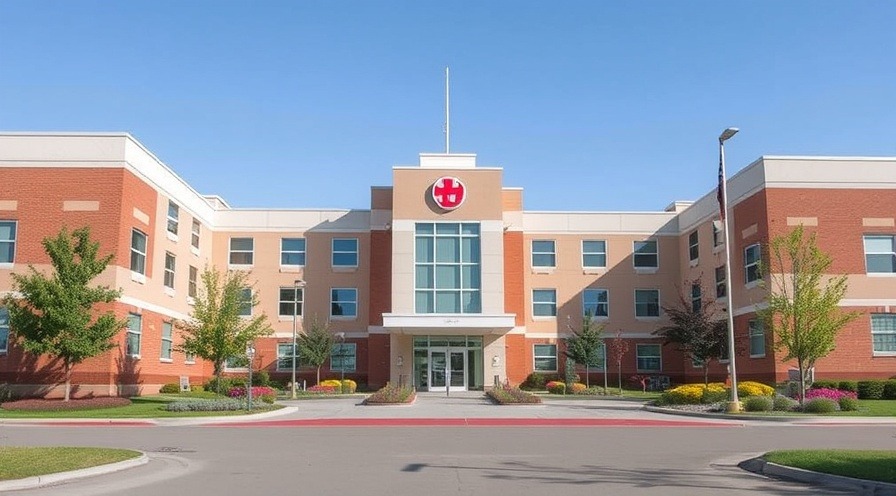
A Vital Shift: Why Prospect Medical's Changes Matter
The healthcare landscape in Pennsylvania is facing significant turmoil as Prospect Medical Holdings initiates the transfer of services from two major hospitals, Crozer-Chester Medical Center and Taylor Hospital, due to impending closures. This move has direct implications for the local communities that depend on these facilities for essential health services, particularly obstetrics and gynecology, which are now being handed over to external local providers.
The Context Behind the Closures
Prospect Medical, which took over Crozer Health in 2016, has been grappling with severe financial strain, leading to its recent bankruptcy filing earlier this year. The company's troubles are not isolated; they echo similar challenges faced by hospital chains across the nation. For instance, Steward Health Care System was forced to close facilities in Massachusetts after struggling to secure adequate funding amidst rising debts and operational costs.
What This Means for Residents
In a letter to the bankruptcy court, county officials voiced their concerns about the closures. They warned that if Prospect proceeds as planned, Delaware County's approximately 500,000 residents would lose access to two of their last four hospitals, raising serious public health concerns in the area. With the state's financial support falling short, the future of healthcare access in this region hangs in the balance.

Funding Challenges and Community Impact
Despite securing $40 million from local and state governments, additional funding requests have been denied. This lack of financial support exacerbates the situation, forcing Prospect to sell smaller assets—an estimated value of under $5 million—in hopes of maintaining operational viability and advancing talks with potential buyers. The case illustrates how financial issues can translate directly into diminished healthcare access, particularly in underserved communities.
Historic Precedents: A Cautionary Tale
The Pennsylvania situation is not unique. Historical data shows that when hospitals close, local health outcomes often worsen. In Massachusetts, attempts to keep facilities afloat have seen mixed results with some hospitals nonetheless closing despite state intervention. These precedents raise critical questions about the sustainability of healthcare systems across the country, particularly in rural and urban areas that rely heavily on a limited number of hospitals.
Looking Forward: Insights for the Future
As Prospect Medical navigates these changes, the broader implications for healthcare policy and community health access should be at the forefront of discussions. Stakeholders must consider not just the economic aspects of healthcare operations, but also the ethical responsibilities towards residents who depend on those medical services.
A Call for Community Awareness Nationwide
The ongoing changes made by Prospect Medical serve as a wake-up call for communities and policymakers alike. Engaging in dialogue and advocating for sustainable healthcare funding must become priorities for local governments. Without these efforts, the ramifications could extend far beyond financial losses; they could undermine the very fabric of community health.
 Add Row
Add Row  Add
Add 




 Add Row
Add Row  Add
Add 

Write A Comment